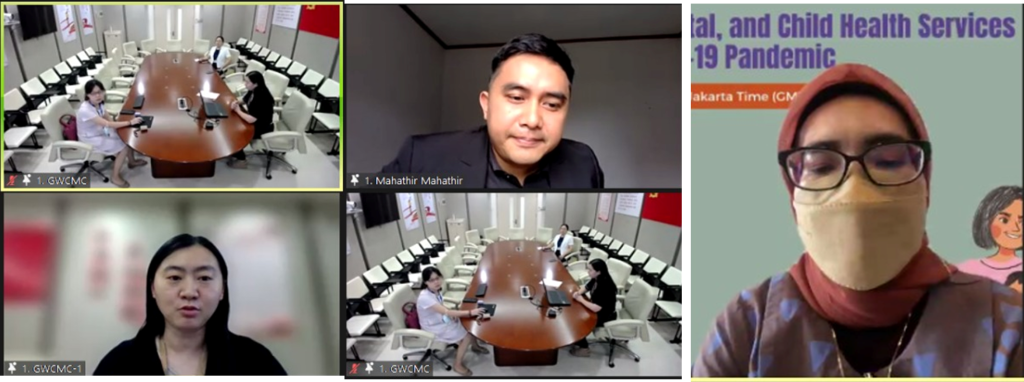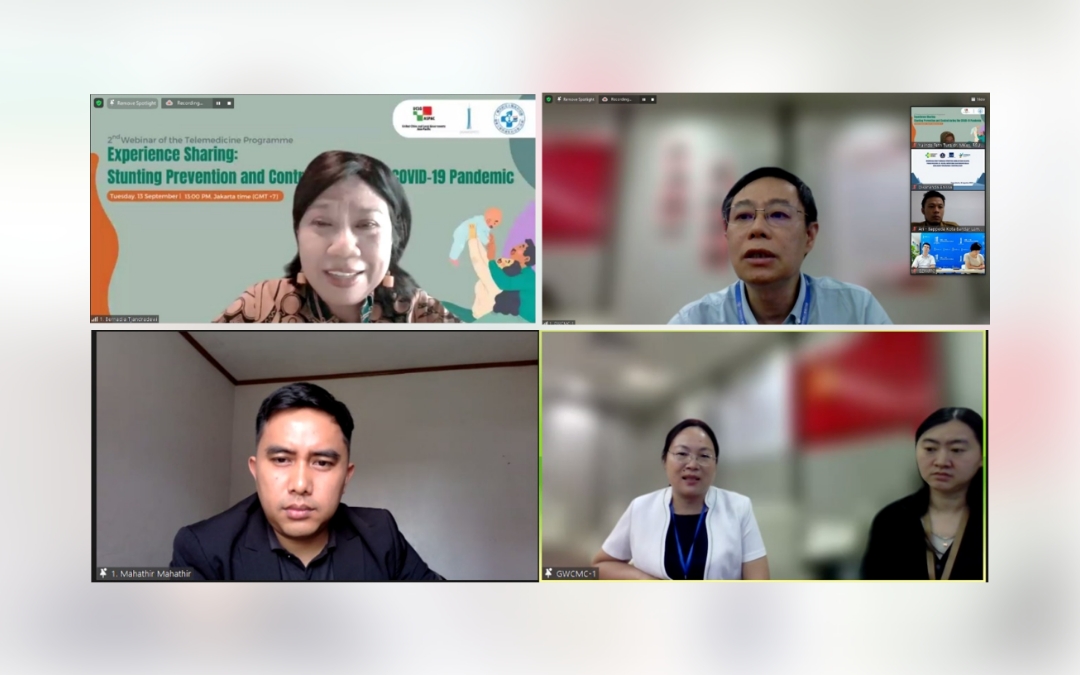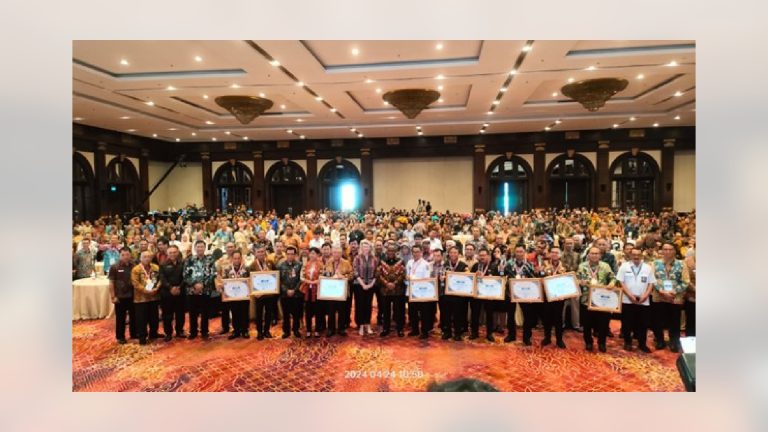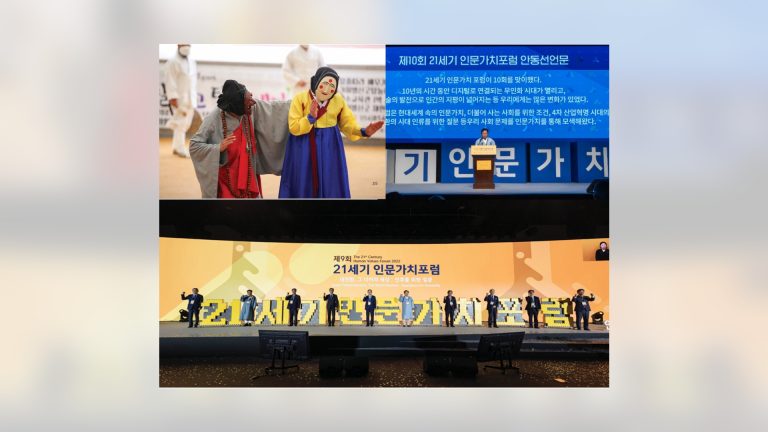September 13, 2022 | UCLG ASPAC and the City of Guangzhou, in collaboration with Guangzhou Women and Children Medical Centre (GWCMC), organised a webinar entitled “Experience Sharing: Stunting Prevention and Control in the Post-COVID Era.” This is the second of the webinar series organised as part of the Telemedicine Programme under the framework of UCLG ASPAC’s Standing Committee on Women in Local Governments Committee (SCWLG), focusing on health for the future generation.
Attracted approximately 77 participants, the webinar shared knowledge and practices of the City of Guangzhou through the presentation of the Guangzhou Women and Children Medical Center (GWCMC) in the prevention, and control/management of child stunting in the post-COVID-19 pandemic, specifically for the first 1000 days of life. It also discussed policies, strategies and innovation in health and non-health sectors.
Ms. Zhang Yajie, Chair of Standing Committee of Women in Local Governments, UCLG ASPAC; Vice-Chair of the Chinese People’s Political Consultative Conference Guangzhou Committee emphasised that children are the future of a country and the hope of a nation. With this importance, she shared that in 2018, Guangzhou formulated “the Implementation Plan of the Guangzhou Municipality National Nutrition Programme (2018-2030) to introduce healthy cooking methods and nutritious and balanced diet. In addition, Guangzhou has also issued “the Development Plan for Women and Children in Guangzhou (2021-2030).”It implements the basic state policy of gender equality, adheres to the principle of children first, optimises the development environment for women and children and sets the goals and tasks for women and children’s development in the next decade.
UCLG ASPAC Secretary General Dr. Bernadia Irawati Tjandradewi highly appreciated Guangzhou City for organising the webinar. She reminded us that many countries are committed to ending all forms of malnutrition by 2030 including stunting in children under five years, as part of the 2030 Global Agenda. Before the COVID-19 pandemic, stunting reduction was challenging work for countries in some regions, now the countries have faced more burden in reducing stunting prevalence during the pandemic. In the context of the fight against COVID-19, providing healthcare services to protect children from malnutrition is equally important as COVID-19 vaccination. It requires effective execution of strategies, commitment, political will, funding, and international unity. She called attention to improving public health and investing in children’s health.
Dr. Qingfeng Li, Vice President of Guangzhou Women and Children’s Medical Center (GWCMC) pointed out that childhood in the early stage of life, especially infancy, is the most rapid growth and development period in one’s life, and the most important for the development of comprehensive abilities and organ systems. This period is also crucial to adult health. He shared that GWCMC provides not only individual, clinical, and cutting-edge diagnosis and treatment for children with stunting, but also a maternal and child health institution which is a technical support unit for the public health care of children and pregnant women in Guangzhou to monitor, manage growth and development, and prevent diseases in the early stage of life for the whole children in Guangzhou.
Ns. Mahatir, M.Kep, Sp.Kep.Kom, lecturer at Andalas University, moderated discussions with two distinguished speakers from GWCMC. Dr. Yan Hu, Director of the Department of Children’s Healthcare presented Guangzhou’s Experience: Programmes and Policies in stunting prevention and control during the pandemic COVID-19. Professor Mao Xiaojian, Vice Director of the Department of Pediatric Endocrinology presented effective practices in delivering maternal and child health to prevent and control stunting.
Dr. Yan Hu informed that Guangzhou has a ‘Basic Public Health System and Health Management for children aged 0-6 years.’ This programme helps medical experts to handle new-born babies and keep in-track of their growth and health. There are few programmes in the system, such as Lifecycle Health Management, New-born Family Visit, Management of High-risk Children, Neonatal Screening and Vision Care for Children. All these services are free of charge. During the lockdown period, the medical workers still do family visits for the newborn and use Artificial Intelligence (AI) to support the health services.
Professor Mao shared some practices that medical workers can do to prevent and treat stunting in children during pandemics like:
- Medical doctors/staff should not leave the commitment and duties for stunting prevention although they are occupied with volunteering for COVID-19 management;
- Promote social awareness of stunting in children and its preventions;
- Increase primary healthcare physician’s knowledge about stunting and ensure early identification and diagnosis;
- Ensure that stunted children get easy access to medical care, accurate diagnosis, and precise treatment;
- Provide follow-up actions and services for stunted children through offline and online services;
- Promote social assistance for children from low-income families in preventing and treating stunting;
- Involve Obstetrics and Gynecology, Fetal Medicine, Child Health, Pediatric Medicine and Pediatric Surgery in the prevention, precise diagnosis and treatment of stunting;
- Take into account research and innovation to stay updated on recent stunting issues.
There were also discussions brought up by dr. Sabar Hutabarat SpA and dr. Vivi Septriani, SpA, both medical workers at Abdul Manap Hospital in Jambi. They shared their experiences and obstacles in delivering health services to children, in particular the process of identifying children with stunting and also monitoring. Even though Jambi City has generally implemented basic services for the prevention and treatment of children with stunting, its implementation still has to be optimised in terms of the infrastructure, the number and the capacity of health workers in providing the services.
“Experience Sharing: Stunting Prevention and Control in the Post COVID Era” is the second of the webinar series organised as part of the Telemedicine Programme under the framework SCWLG. It is a continuation of the first webinar taking the theme “Maternal, Neonatal, and Child Health Services during the COVID-19 Pandemic,” successfully held on April 22, 2022. Like the previous one, this webinar also received enthusiastic responses from participants.













